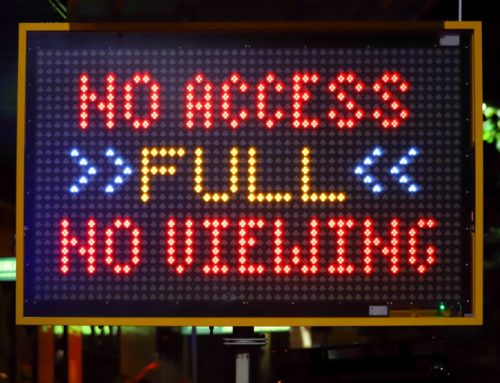Kivi has shared a few posts in recent weeks on how you can stop being a doormat at your organization. It’s a common problem especially for nonprofit communications staff since so many things can be considered “communications.”
- Communications Directors: “Doormat” Isn’t in Your Job Description
- Setting Boundaries So You Don’t Get Doormatted
Also see: 7 Ways to Say “No” Without Really Saying It
Today’s webinar in our Nonprofit Communications Check In Webinar Series focused on well-being at work and we talked a lot about boundaries. (Recording available for this webinar when you buy the three-part series.)
As Kivi explained today, boundaries are a simple “yes” or “no” (usually focusing on the “NO” part if we’re being honest).
But standing up to those who cross boundaries can be hard.
As Dan Bates explains in Don’t Be a Bully or a Doormat, when handling those who ignore your boundaries or conflict in general, you want to find the area between “passive” and “aggressive.”
He defines that area as “assertiveness” and that’s how you advocate for yourself and get things done without causing conflict and resentment in others.
“Aggressive communication leads to defensiveness and combativeness. Passive communication doesn’t address problems at all. Assertive communication, on the other hand, provides the means for difficult subjects to be addressed in a meaningful way. If the conversation is done with respect, people are more likely to listen, even if they disagree.”
Dan Bates in Don’t Be a Bully or a Doormat
So whether you are more on the passive side or aggressive side, here are some ways you can gravitate toward the middle area of assertiveness.
Balance Needs. You can’t simply ignore someone else’s needs because they don’t line up with yours. And you can’t always do what others want. This is about basing your decision on being fair and respectful of all sides.
Deliver Your Message without Attacking. While being assertive means you will still have to face difficult situations, you want to make sure you aren’t demeaning the other side. Dan says to show empathy and respect before sharing your feedback and people will be more open to what you have to say.
Remember, It’s Not Mean (or Weak) to Be Assertive. Assertive people advocate for their own needs and the needs of their staff. You aren’t a mean person for wanting what’s best for your organization and you aren’t weak for compromising and showing respect.
Read the full post: Don’t Be a Bully or a Doormat
Where do you think you are in this spectrum – passive or aggressive or just right? Share what you will do to get more toward the middle assertive ground.






